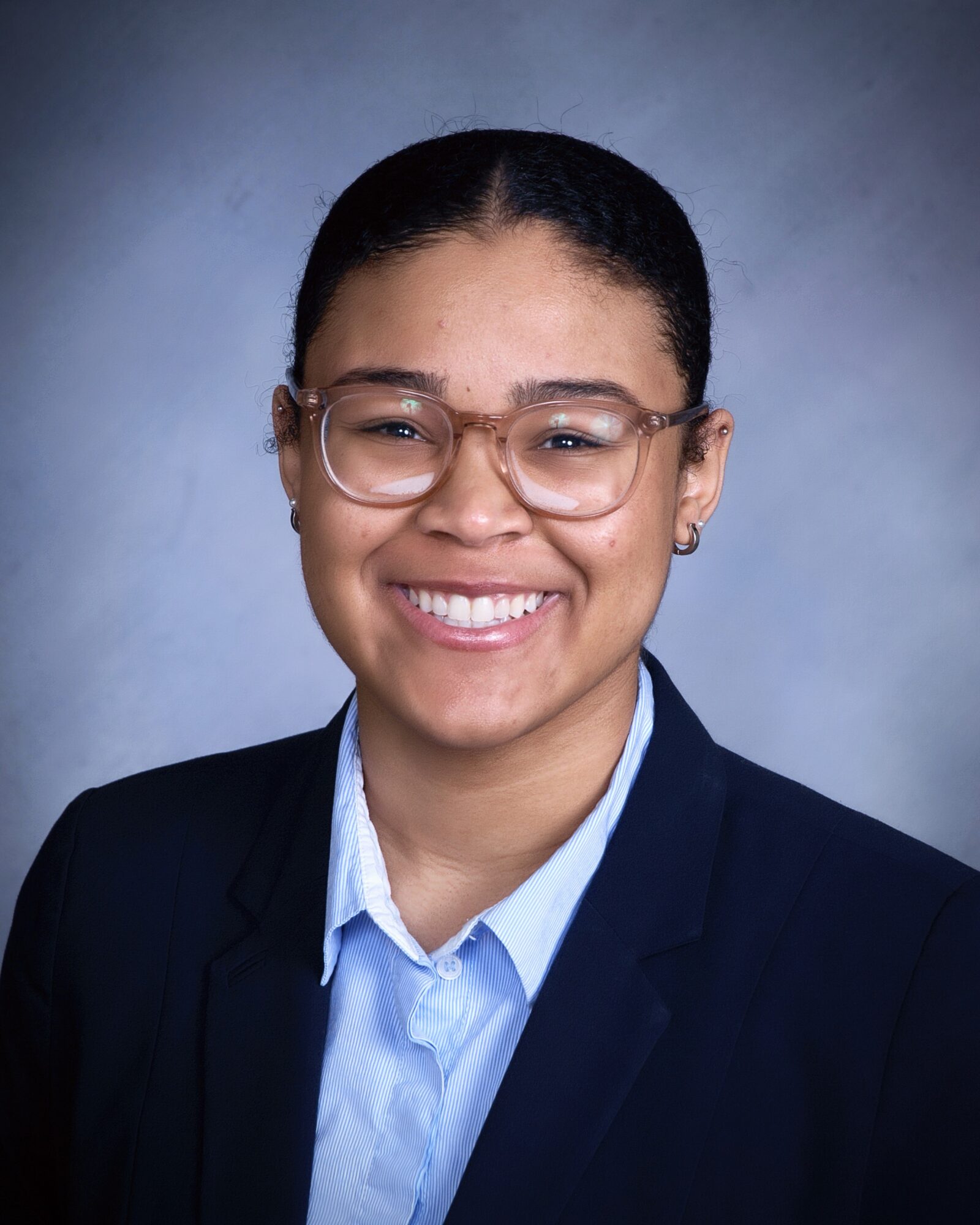
Browsing the grocery store, Kyra Thomas ’21 (Engineering and Computer Science) scans the products on each shelf to determine if they fit within her dietary restrictions as her friends do the same. Her eyes dart from ingredient list to ingredient list, searching for the offenders that could spell out a violation of her ethics, or worse, elicit a severe allergic reaction.
“I’m always conscious of what I can and can’t eat,” Thomas says.
In that moment, she decided that there has to be an easier way to do this. Perhaps she could harness technology to ease the process?
Thomas, a Syracuse University senior majoring in computer science, hopes to use her knowledge to create a company that provides technology solutions that help with accessibility and inclusion.
This is the story of how Signal was born.
“A lot of people are experiencing the progression of technology, so I wanted to make sure everyone is included in that,” Thomas says.
She says this would especially be important for people of color or for those suffering from disabilities, both of whom are often excluded from the technology revolution.
“Most apps are first created with a certain customer in mind and then later made accessible. We want to start with the accessibility first.”
To kick off Signal’s solutions, Thomas began with a singular app idea: InfoBytes. She and her team are creating InfoBytes as an app that would allow users to input sets of dietary restrictions then simply scan products and be told if they are safe to eat. This would be a major step forward in technology, particularly for those who are visually impaired.
A creative problem solver that surrounds herself with innovative thinkers, Thomas is collaborating with three other team members to make this a reality: Jeremy Gavrilov, Lauryn Rivers, and Tiara Logan. She explained that creating a strong team means listening to each other because by creating a welcome and supportive environment, teammates can share different outlooks to ultimately improve an idea.
That says, her team comes from a background related mainly to computer science.
“Creating a startup was new to us. We had to learn to think about things from a business perspective instead of just a tech perspective.” The team had to adapt to considering factors like efficiency and costs. Although the path wasn’t easy, Thomas persevered in helping her team evolve. They worked with the LaunchPad team at SU to make their first pitch at the ACC InVenture Prize campus competition earlier this semester.
Having grown up in a STEM-based all-girls school that provided her with strong encouragement to take on leadership roles, Thomas grew up to be a natural leader herself.
“I always knew I wanted to have a big impact on people, and that’s part of being an entrepreneur. We need to recognize that this potential for impact is a big responsibility that entrepreneurs have.”
As technology evolves, Thomas envisions that more ethical issues will continue to arise (such as those involving machine learning, algorithm bias, AI, or data privacy). It’s vital to remain aware of these ethical questions.
“What precautions can I take when creating tech solutions to avoid, say, bias or privacy concerns?” Thomas asks.
Thomas explained that “innovation is directly tied with creativity.” That is, an innovator is someone who creates solutions to problems in a way that is different than what’s been done or thought about before. Signal aims to be that creative solution.
Thomas recently filed the paperwork to confirm Signal as an LLC and is turning her attention towards finishing the development of an app prototype for InfoBytes, conducting user testing, and looking for more funding.
After receiving positive feedback from the Blackstone LaunchPad & Techstars from their ACC InVenture prize pitch, Thomas’s team learned how to strengthen their business plan moving forward.
“Even though we didn’t win the competition, we still won a lot of other things,” Thomas says in reference to the knowledge and experience her team gained.
She encourages other entrepreneurs to utilize all of the resources they have access to, such as Blackstone LaunchPad & Techstars, and to reach out to people with questions.
“Just email someone, or if you don’t know who to ask, pull up LinkedIn. If someone’s job sounds interesting, message them just to ask a few questions about what they do.” This is precisely how an entrepreneur can learn and grow from more experienced advice.
Following graduation, Thomas will be working with Lockheed Martin on the next manned space vehicle, but her team will continue balancing the development of Signal.
“I believe that we can make it work,” she says, nodding to herself with a smile on her face.
Signal’s website is still yet to be completed, but to learn more about Thomas’s current and upcoming projects, you can find her on LinkedIn.
Story by Sasha Temerte ’23, LaunchPad Orange Ambassador; photo supplied